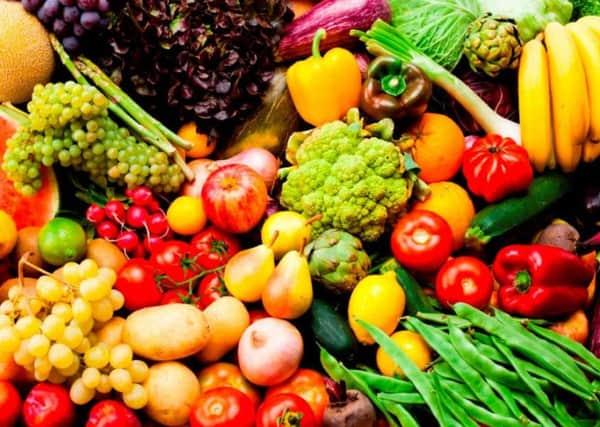Jayne Dowle: Helping families budget for food should be the priority


These are the children who suffer from a condition known as “holiday hunger” – they are missing out on the free school meals they receive in term time. And yes, this is happening in a Western country in the 21st century. If this wasn’t bad enough, their parents might be in a constant state of malnutrition themselves.
A new study, which has been presented at the Royal Geographical Society’s annual conference, suggests that one in 25 people in Britain cannot afford to feed themselves regularly.
Advertisement
Hide AdAdvertisement
Hide AdThe challenge is especially acute in urban areas outside London, with the researchers identifying Hull, Middlesbrough and Liverpool as the cities with the greatest number of neighbourhoods where people are at the highest risk of struggling with grocery bills.
I see it all around me here in South Yorkshire. Only the other week in a supermarket, my daughter and I looked on with a mixture of incredulity and pity as we watched a man and his young son load up a box with 10 Pot Noodles for £1 each.
We gathered from his conversation with the cashier that this was tea for his family. We don’t think we were jumping to conclusions but it looked as if this was all they could afford.
How can this be happening? And how can this perilous situation, detrimental to the health of children and adults, be turned around? The answer could be to look to the past. Data from the oldest versions of the National Food Survey, recently received by Defra, suggests that we, as a nation, ate better in the 1940s – when rationing was in force – than we do today.
Advertisement
Hide AdAdvertisement
Hide AdBack then, about a third of household income was spent on food compared to about 12 per cent then. People ate four meals a day, and relied hugely on produce they grew themselves in gardens and allotments to almost double the amount of food they bought. Take-aways were fish suppers, and meals in restaurants a very rare treat. In 1952, nearly half of all households never ate outside the home.
We can draw some interesting comparisons from this which might serve us well when we look at how we might solve our current problems. For a start, if only 12 per cent of our budget is now spent on food, where is the rest going? I am in no position to judge, but is the money being squandered on tobacco, alcohol, fancy televisions and goodness knows what else in some of the worst affected families?
Instead of trying to force people who can barely be bothered to operate a microwave into learning to cook, wouldn’t priorities be better directed towards encouraging parents to budget effectively? How can this be done, though, without encroaching on individual families and invading privacy?
It just wouldn’t be practical, or affordable, to send armies of well-meaning advisors across the country telling people how to run their homes. However, I would like to see much more emphasis given in schools to teaching young people how to become responsible members of society. And if this includes learning how to draw up a household budget in order to prioritise and plan meals, then that wouldn’t be a bad thing at all.
Advertisement
Hide AdAdvertisement
Hide AdI still put into practice what I learned in O-Level Home Economics all those years ago. How many children in school today will be doing the same thing when they end up running homes of their own? Growing our own vegetables might not be practical for all of us, but more of an emphasis on understanding where food comes from would surely be a positive step. In this, schools can again play a valuable role, by encouraging children and youngsters to plant vegetable seeds and explore how produce can be used in recipes.
I’d also like to see much more of a balanced attitude towards food, eating and meal preparation overall. For too long now, the whole subject has been polarised. On one hand, we have the likes of the fragrant Mary Berry whipping up grand desserts and appetising starters on TV using expensive ingredients and terrifying techniques. And on the other? We’ve got that man in the supermarket stocking up on Pot Noodles for tea.
No wonder food has become so low down on the list of household priorities. There must be millions of people in this country who feel totally disenfranchised from the very subject. I welcome the new “Great British Food” campaign launched by Environment Secretary Andrea Leadsom. It aims to champion British produce at home and abroad, highlight regional cuisine and back our food and farming industry, which employs one in eight people.
I fear it is glossing over the real issue. Children in this country are starving. We need a fresh approach to food, and we need it fast.